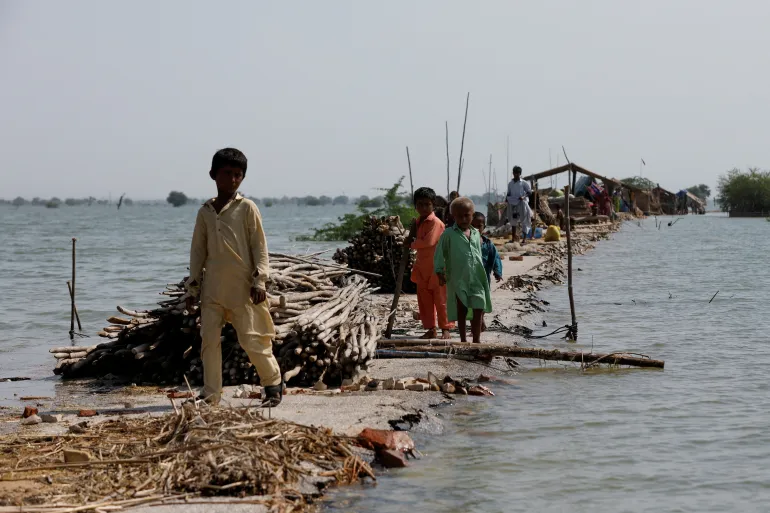The Pakistani government appears to have acknowledged the looming threat posed by the adverse effects of climate change. However, this recognition alone is insufficient, as the necessary infrastructure to implement effective preventive measures is lacking.
In recent years, the world has witnessed increasingly severe natural disasters occurring simultaneously across the globe. These phenomena, including intense weather events, are largely attributed to human activities, particularly since the onset of industrialization in the nineteenth century. The proliferation of factories powered by fossil fuels has contributed to escalating emissions, exacerbating the greenhouse effect and consequently impacting global weather patterns, seasonal cycles, and ecosystems.
Pakistan, despite contributing less than 1% of global carbon emissions, has borne a disproportionate share of the consequences of climate change. The country’s vulnerability is exacerbated by budgetary constraints and a lack of sustained political commitment to translating climate policies into action.
In response to the devastating floods of 2022, Pakistan hosted the International Conference on Climate Resilient Pakistan (ICCRP) in Geneva in early 2023. Despite pledges of over $8 billion in reconstruction assistance, progress has been limited.
Climate change poses an existential threat to Pakistan, necessitating substantial investments in resilience-building measures. The World Bank estimates that a total investment of $348 billion is required between 2023 and 2030 to mitigate the impacts of climate change. However, Pakistan’s climate budget remains opaque, with little clarity on expenditure.
Experts emphasize the need for increased funding for climate adaptation and mitigation projects, as well as the integration of climate considerations into policymaking at all levels. They stress the importance of political will, community engagement, and long-term planning to effectively combat climate change.
As Pakistan prepares its budget for the fiscal year 2024-25, it remains to be seen how much will be allocated for climate change initiatives. A comprehensive and transparent approach, driven by statesmanship and stakeholder involvement, is essential to safeguarding the country’s future.
